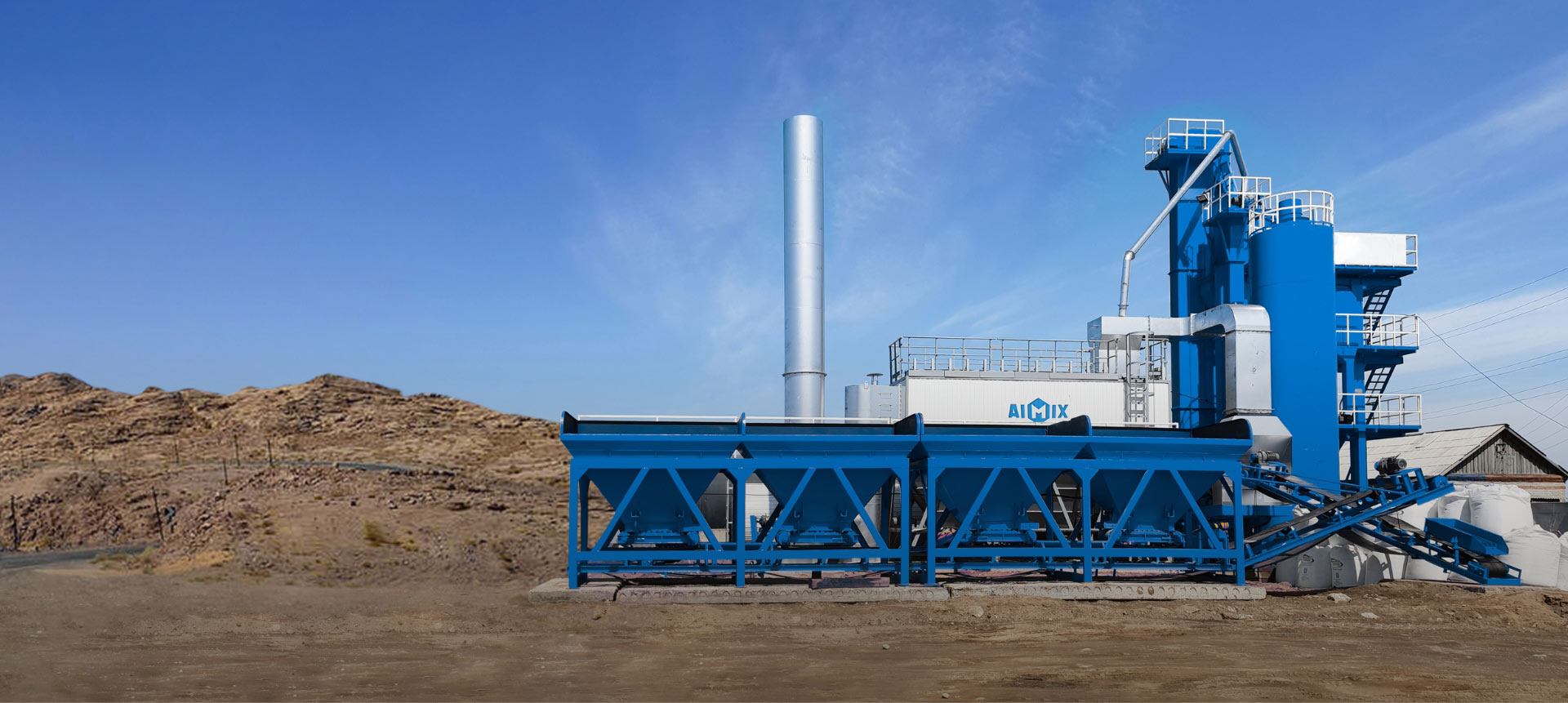The choice between a drum mix and batch mix asphalt mixing plant depends on your specific requirements and preferences. Here are some key factors to consider:
Production Capacity
Drum mix asphalt plants typically have higher production capacities than asphalt batching plants. They are designed for continuous operation, where the aggregates and asphalt are fed into the drum and mixed together as they move through it. This continuous process allows for a higher output of hot mix asphalt (HMA). Drum mix plants are well-suited for large-scale projects that require a significant amount of asphalt production to meet high demand.
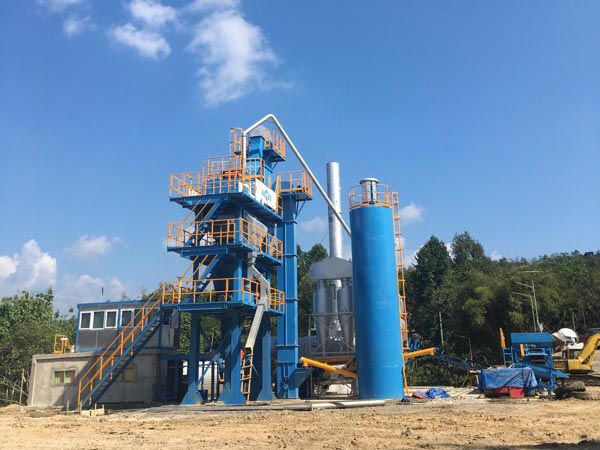
Flexibility
Batch mix asphalt plants offer greater flexibility in terms of producing different types and grades of asphalt mixes. These plants operate in batches, where specific amounts of aggregates, filler materials, and asphalt are weighed and then mixed in a separate mixer. This enables the plant operator to quickly change the mix formulation or adjust proportions to meet the project’s requirements. Batch mix plants are commonly used for smaller projects, such as road repairs, local paving, or specialized mix designs.
Energy Efficiency
Drum mix asphalt plants tend to be more energy-efficient due to their continuous operation. The aggregates are heated and dried inside the drum using the hot gases produced by the burner. The efficient heat transfer minimizes energy loss and reduces fuel consumption, resulting in lower operating costs over time. On the other hand, batch mix plants require intermittent heating and can experience some heat loss during mixing cycles.
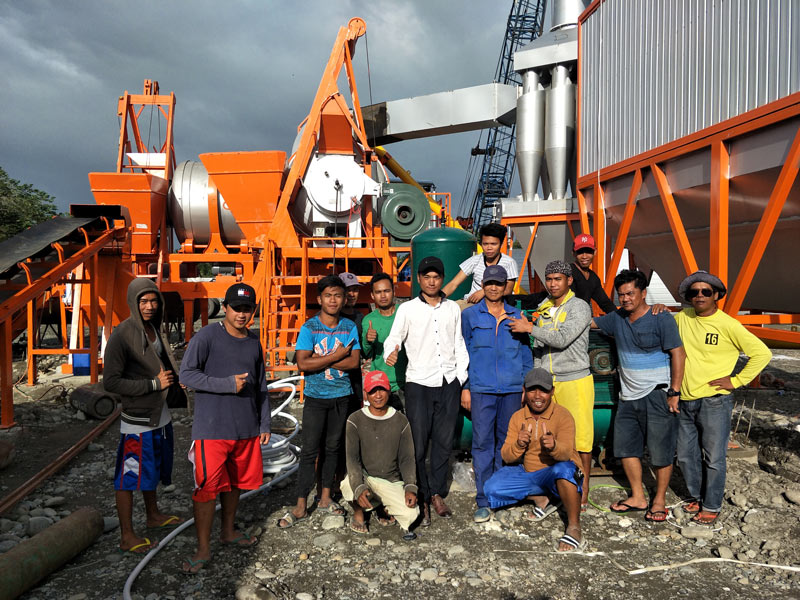
Quality Control
Batch mix asphalt plants provide better control over the mixing process, which can result in improved quality control and consistency of the asphalt mix. In an asphalt mixing plant amp, each ingredient is carefully measured and added to the mixer in specific proportions. This precise weighing and measuring of the materials help ensure accurate mix formulations. The operator can also monitor the mixing process closely, making adjustments if needed. This level of control is particularly beneficial for projects that require strict adherence to mix specifications or involve specialty mixes.
Environmental Impact
Drum mix asphalt plants generally emit fewer particulate pollutants compared to batch mix plants. The enclosed design of the drum and more efficient combustion systems contribute to reduced emissions. However, it’s important to note that modern batch mix plants have incorporated advanced technologies, such as baghouse filters and additional pollution control devices, to minimize emissions and meet environmental regulations. Both types of plants can be designed to comply with emission standards and promote sustainability in asphalt production.
In addition to the factors mentioned earlier, here are some country-specific considerations for selecting an asphalt mixing plant Indonesia, Philippines, and Russia:
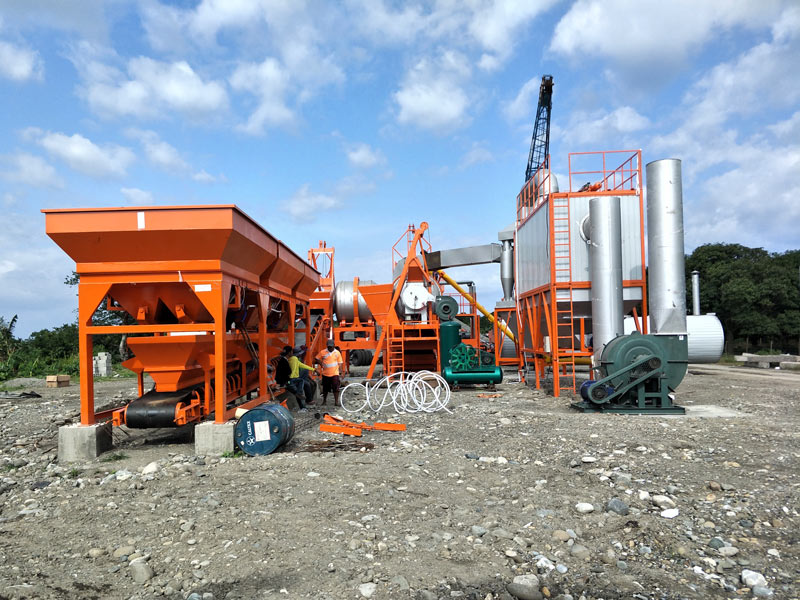
Indonesia
Availability of Raw Materials: Consider the availability and quality of aggregates, asphalt binder, and other raw materials used in asphalt production. Ensure that the plant’s design is suitable for the specific materials found in Indonesia.
Environmental Regulations: Indonesia has specific environmental regulations governing emissions from industrial operations. Ensure that the chosen plant complies with local environmental standards and can effectively control emissions.
Project Scale: Depending on the scale of your projects in Indonesia, consider the capacity of the plant to meet the demand effectively. Large-scale infrastructure projects may require higher production capacities.
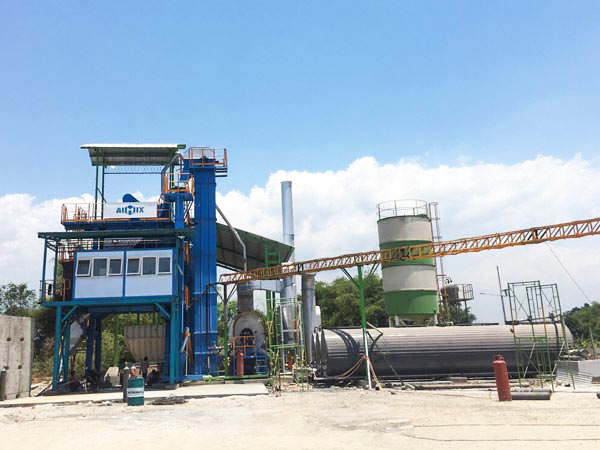
Environmental Impact: Drum mix asphalt plants generally emit fewer particulate pollutants compared to batch mix plants. The enclosed design of the drum and more efficient combustion systems contribute to reduced emissions. However, it’s important to note that modern batch mix plants have incorporated advanced technologies, such as baghouse filters and additional pollution control devices, to minimize emissions and meet environmental regulations. Both types of plants can be designed to comply with emission standards and promote sustainability in asphalt production.
Philippines
Climate Considerations: The Philippines experiences tropical weather conditions, including high humidity and heavy rainfall. Choose an asphalt plant designed to handle such conditions and ensure proper drainage systems to avoid excessive moisture in the mix.
Local Regulations: Familiarize yourself with local regulations and permit requirements for operating an asphalt plant in the Philippines. Compliance with noise regulations and zoning restrictions is crucial.
Maintenance and After-Sales Support: Evaluate the availability of spare parts and after-sales support services in the Philippines to ensure smooth plant operation and minimize downtime.
Russia
Cold Weather Performance: Russia has a significant portion of its territory in cold climate zones. Select an asphalt plant that can handle the challenges associated with producing and placing asphalt mixes in low-temperature conditions.
Energy Efficiency in Heating: Given the colder climate, energy efficiency in heating aggregates and maintaining proper mix temperatures becomes critical. Look for plants with efficient insulation and heating systems to optimize fuel consumption.
Transportation Infrastructure: Assess the transportation infrastructure in Russia, considering access to raw materials, proximity to project sites, and ease of transporting the finished asphalt mix.
Conducting thorough research, consulting with local experts, and considering the unique conditions of each country will help in making an informed decision when purchasing an asphalt batching plant.
